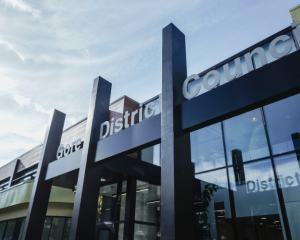
Figures show the 10 southern councils spent a total of $541,271.20.
The Dunedin City Council spent the largest amount, outlaying $162,280 on catering, $31,634 on gifts and $4753 on entertainment.
A DCC spokesman said the spending related to a ''wide range of functions and activities'', such as catering for citizenship ceremonies, catering for 10-year plan community events and economic development events.
''Every effort is made to keep costs down and recover expenses where appropriate.''
The spokesman said the figures showed the gross amount spent on catering, but did not include funding such as sponsorship received for some of the functions and events.
The thriftiest spender was the Gore District Council.
It spent $712 on gifts, $12,250 on catering, and nothing on entertainment.
The Queenstown Lakes District Council was also among the most frugal, spending $7602.33 on catering, $2792.80 on gifts, and $7385.21 on entertainment.
Invercargill City Council chief executive Clare Hadley said the key drivers behind her council's spend of at least $54,449.93 (the figures were only supplied for January-October) were staff Christmas gifts and the staff Christmas function, as well as some
long-service gifts.
''Catering expenditure relates to various meetings, staff leaving presentations and recognition of milestone achievements.''
The council had set itself a savings target in its long-term plan of $500,000 for the 2018-19 year, with an additional $500,000 over the following
two years, she said.
''As part of the review of council funding, all areas of council expenditure will be looked at in depth to ensure that expenditure is appropriate.''
The Otago Regional Council, the third-biggest spender, forked out $72,203.60 in total.
That included $1302.19 on flowers for gifts, and $408.66 at takeaway pizza companies.
Council spokesman Nick Donnelly said the expenditure was ''appropriate and as with all council expenditure, it will continue to be monitored to ensure it remains appropriate''.
The Central Otago District Council spent a total of $43,309.
Central Otago chief executive Sanchia Jacobs said about 20% of the spending related to promoting Central Otago through things like local produce, which was often given as a promotional gift.
''The figures also include a bi-annual function promoting successful business, youth and community leaders.''
The council had a no-alcohol policy that ensured alcohol was not purchased on the ratepayer dollar, she said.
''Central Otago District Council takes a proactive approach to ensuring that our spending represents good value for our ratepayers.
''We review budgets on an annual basis and ensure that we feel all spending is within the bound of acceptable business practice on behalf of the people we serve.''
The figures were released by councils to the Taxpayers Union under the Local Government Official Information and Meetings Act.
Spokesman Louis Houlbrooke said Dunedin City Council's ''eye-watering spend'' would be unwelcome news to ratepayers.
''Dunedin City Council could get some tips on frugality from Queenstown Lakes.
''Queenstown Lakes District Council's 'indulgence spending' is among the country's lowest, despite being an averagely-populated council. Queenstown ratepayers can take some comfort knowing their council isn't going overboard on ratepayer-funded banquets.''
Comments
One question to DCC in relation to catering would be around waste. Having attended catered meetings at DCC previously, I've noted the numerous untouched, uneaten, party pies and sandwiches (not always the most appetising of fares!). How much is thrown away - and how much ends up in staff common rooms to be "tidied up" (by those who may not need to be catered for) when the uneaten food could be better shared with those who are not so well off (is that even allowed these days?!).
There is no way Queenstown Lakes DC spent under $18k . They are clearly not accounting for their expenditure accurately.











